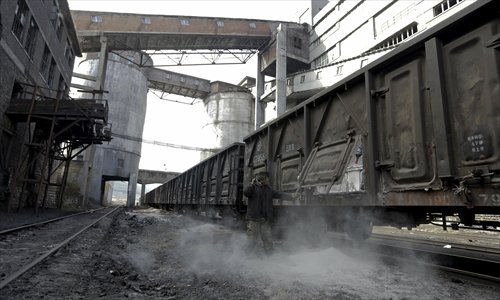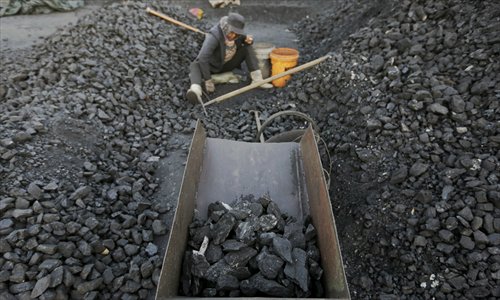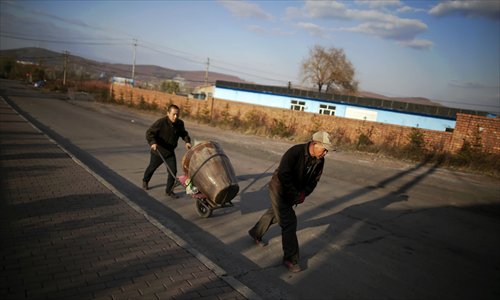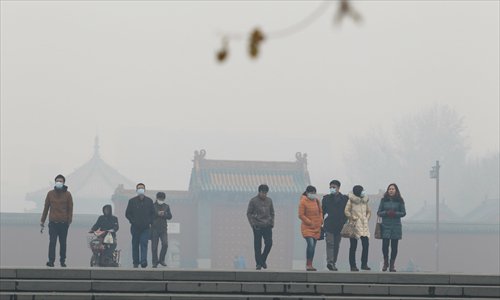Miner threat

A Longmei group worker opens the door of a train carriage to load it with coal, October 23. Photo: CFP

A miner examines coal at a mine in Jixi, October 23. Photo: CFP

Miners carry supplies towards a coal mine. Photo: CFP

Heavy smog shrouds Liaoning Province on Sunday. Photo: CFP

A woman stands before a billboard promoting environment awareness in Shenyang on Sunday. The billboard reads "Breathe like this? With air and environmental pollution, how can a human being survive?" Photo: CFP
Grass grows on imposing mounds of coal, giant excavators sit abandoned on the streets, the chilly winter wind blows coal dust into the compounds where miners live.This is what the Longmei Coal Mine Group looks like today. The Longmei group is a State-owned enterprise (SOE) based in Jixi, Northeast China's Heilongjiang Province, that owns most of the coal mines in the city.
But now, what used to be called "black gold" is no longer shining. The slowing growth of the Chinese economy has caused the price of coal to rapidly decrease. Overproduction and stricter environmental regulations have also forced coal mines to close.
The Longmei group has around 240,000 employees, most of whom are retirees, with only 40,000 miners performing heavy work. As an SOE, the company has to pay the pensions and medical bills of its retirees and provides funding for 42 hospitals and 130 elementary and middle schools. In the US, media reports say there are only around 100,000 miners in the whole coal industry.
The Longmei group can no longer afford these costs. Since September, the group has started to lay off thousands of its workers. There are not many jobs outside coal mining in Jixi, and those who lose their jobs usually leave the city to look for richer seams elsewhere.
According to a report released by the China National Coal Association in July, the salaries of Chinese coal miners have been cut by 30%, and around 40% of coal companies the association surveyed said that they can't afford to continue paying salaries or pensions to miners.
While coal miners are losing their jobs, icy Northeastern China has moved into winter. Most cities in Northeastern China still use coal for heating homes and workplaces. The burning of coal produces harmful pollutants.
Smog shrouded 14 cities in Northeast China's Liaoning Province on Sunday. The Air Quality Index (AQI) in the provincial capital Shenyang reached over 500. According to China's standards, an AQI of over 300 is defined as "hazardous pollution."
Global Times